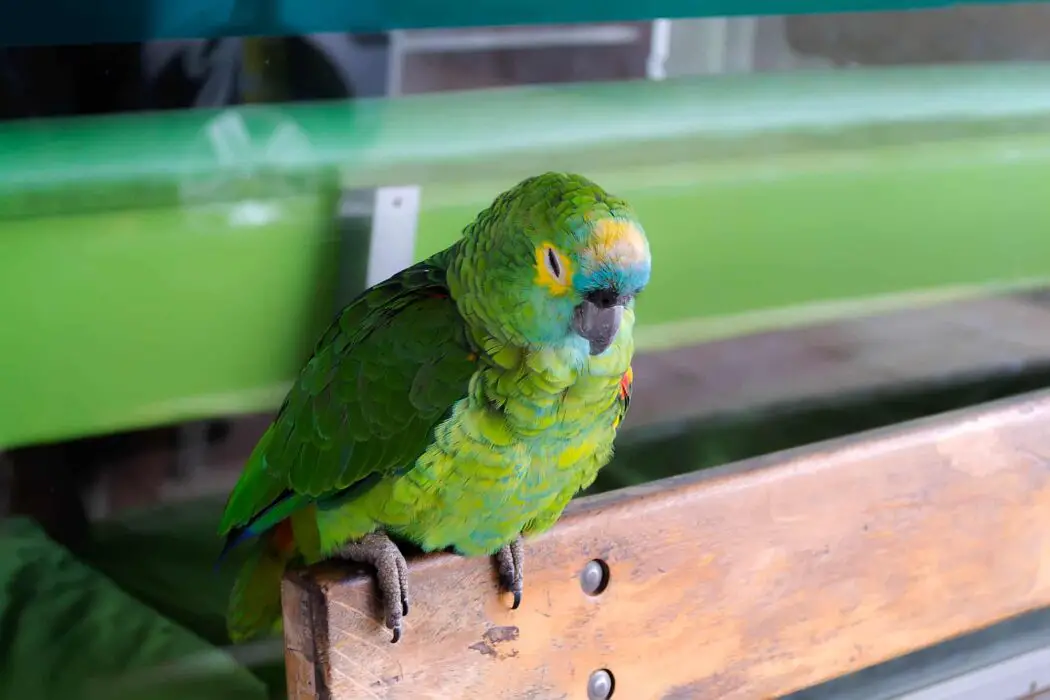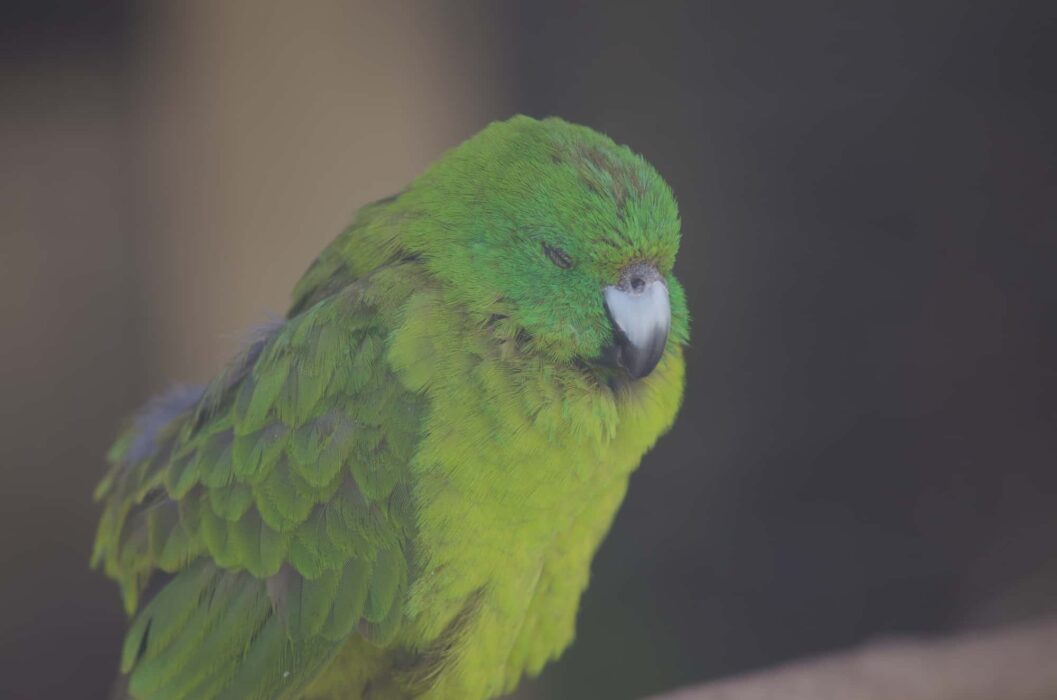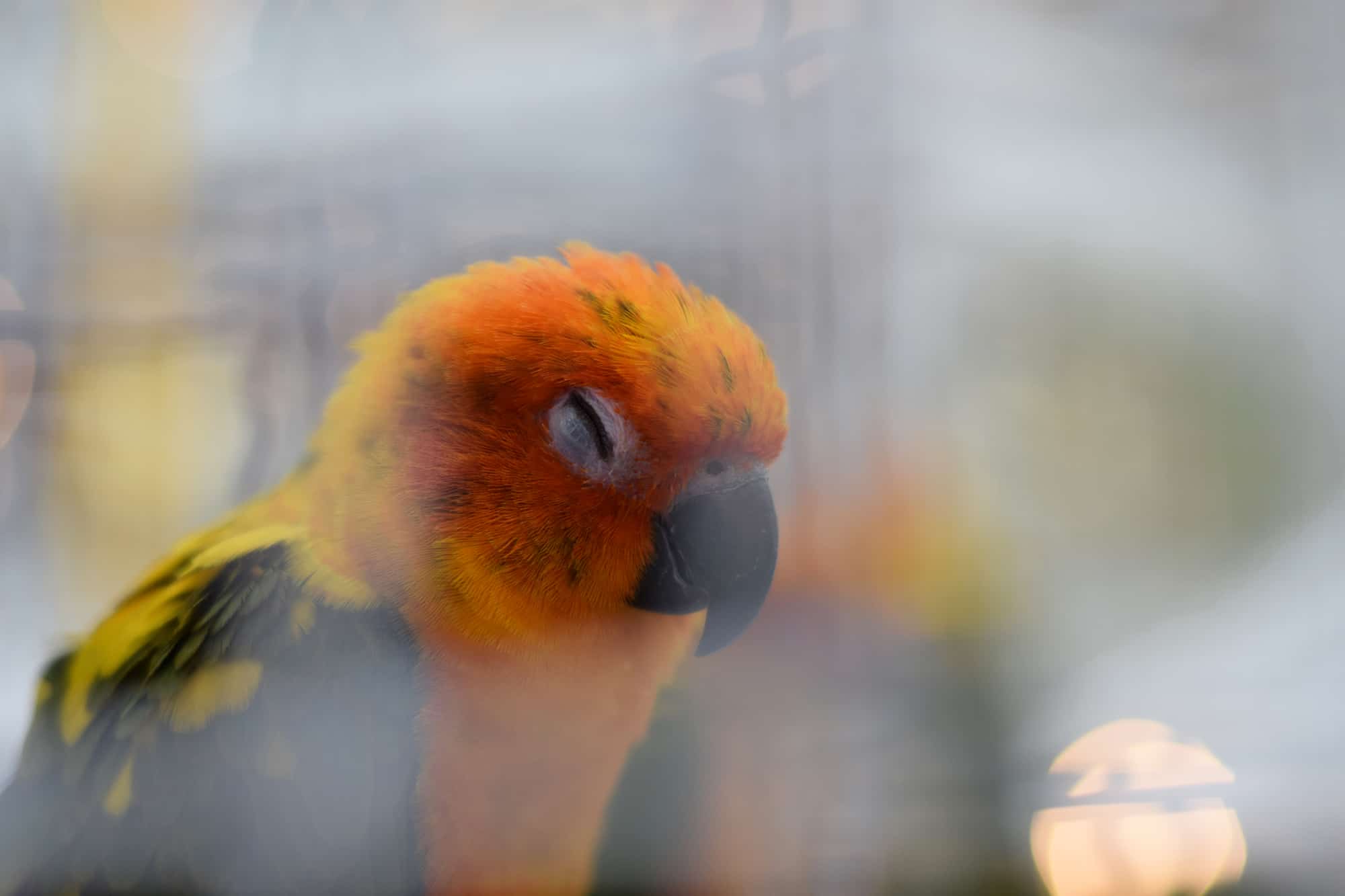Somehow, there is a strong stereotype out there that parakeets are loud at night. And this simple sentence is a crucial factor that discourages people from buying this beautiful bird. I wouldn’t want such unfairness to befall any parrot. So, let’s check our facts and learn whether the stereotype is truthful or not.
Frankly, this stereotype has some legitimate ground – parakeets can be loud at night, but you can minimize the noise by taking good care of the birds. As a result, many parakeet owners sleep peacefully, and so can you. The most common reason for night restlessness is overstimulation. And you’ll learn to eliminate it in this article.
Do not abandon the idea of owning a parakeet straight away! They can be funny companions provided necessary care.
Are Parakeets Loud Usually?

Well, yes. Most parrots are loud and active. Only some birds prefer silence and are meek. Parakeets love to be vocal during the day. They will sing, chirp, whistle, and so on. These are lively and active birds. They are highly social and will often communicate with you and other birds (if you buy a couple or more).
Do Parakeets Grieve Over Lost Partners?
In extreme situations, parakeets’ cries can reach up to 111 decibels. But that would be a rare case.
Usually, parakeets are more active in the morning. They like to greet you when the sun is shining and warming them. During the day, most parrots make lots of noises. If you prefer silence at all times, I’d advise another pet.
Are Parakeets Noisy at Night?

Yes, the daily activity hardly ever bothers anymore. In fact, most people enjoy the chirpiness as it elevates their mood. But what about the night.
Parakeets, and parrots in general, always make subtle, gentle noises as they settle for the night. In the wild, parrots hide at night and sleep. Your parakeet will have the same schedule.
If you notice that your parrot is noisier than usual at this time, it’s a sign of overstimulation.
Parakeets Need a Nest (But an Unusual One)
What causes it?
- Too much sunlight. If your parrot receives too much sunlight as the evening comes, it can become overstimulated and restless. After all, parrots spend evening time as the shadows fall in the wild. So, be careful in the summer, especially during long days. Plus, artificial lighting bothers them as well.
- Lonely. Yes, parrots require lots of attention and love from their owners. They are in the majority sociable birds who live best in flocks. The birds need to waste their playtime energy and interact with their “family’ – you – more. This way, they will sleep peacefully.
- Sickness. Yes, a possible reason for a parrot’s noisiness during the night can be an illness. If it feels pain or is uncomfortable in any way, it will give you all the signs; crying is a clear one.
What to Do When a Parakeet Is Noisy at Night?

First of all, prevention is the key! Avoid the abovementioned points! Reduce the brightness in the evening or, better, drape a blanket over the parakeet’s cage. It will stimulate the approach of the night while you can still enjoy your evening routine. Parrots better live on a schedule, and you should keep their day/night timeframe constant. When it catches the routine, you’ll never hear parrot crime at night.
Experiment with cage placement a bit. It should have enough sunlight during the day but stay hidden in the evenings. And place it further away from your place of evening entertainment. Do not sacrifice your parrot’s health or your fun. I’ve even seen some cases where the owners would have a second cage for the parrot to sleep in. This is an excessive luxury for many, so you’ll need to be creative with the placement.
What Can Parakeets Eat? Full Diet Review
Secondly, start spending more time with the bird. It requires attention – plays with it. Teach it to talk. Buy or make a couple of parrot puzzles. Just make sure the bird is happy and doesn’t feel neglected.
Also, try to include stimulating kinds of games, not only funny ladders and so on. Parakeets are intelligent animals! (yesy-yes, parrots are animals, you can check in my article: They need all sorts of puzzles to stimulate their tiny yet powerful minds.
Make regular vet appointments. Do you remember? Prevention is the key. Take good care o is mental and physical health. If the noise has already started, think about making a vet appointment.
All in all, if you create perfect conditions for your parrots, they’ll be sleeping well at night. Any kind of loud noise during night hours indicates distress. Make a mental note of the factors I’ve mentioned. If you’ve followed all the instructions and the bird is still restless, it’s a clear sign to make an appointment with your vet as soon as possible.


